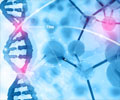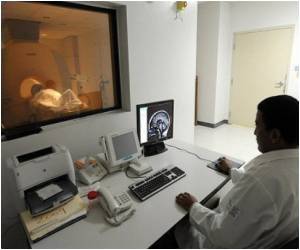Mutation in sodium-potassium pump, a serious disease in children has been uncovered.

TOP INSIGHT
Using a genetic analysis, the researchers have discovered that the disease is caused by a newly occurring mutation in one of the sodium-potassium pump's four forms, known as the Alpha-1 form.
"It turns out that the form of sodium-potassium pump which mutates is found in both the kidneys and the brain. The mutation leads to the kidneys, which normally absorb magnesium, instead secreting the substance in the urine; however, it is not the loss of magnesium which triggers the epileptic seizures. The convulsions occur because the sodium-potassium pump is also extremely important for the brain's functions, meaning that giving extra magnesium supplements won't help prevent the seizures," says Bente Vilsen.
She adds that the third frightening sign of the disease, mental retardation, should probably be attributed to a lack of oxygen to the brain during the seizures.
The children share the common trait that the mutations have destroyed the pump functioning that Jens Christian Skou received the Nobel Prize in Chemistry in 1997 for discovering. This knowledge is important because understanding the role of the sodium-potassium pump is the first step towards developing effective treatment methods. The research group is now working towards this goal, even though the disease is most likely rare.
"But three cases have turned up in two different places in Europe and in Canada, and they're not likely to be the only ones," says Bente Vilsen. She explains that the new knowledge about the disease will probably mean that medical doctors will in future be more aware that loss of magnesium in combination with epilepsy may be caused by genetic defects in the sodium-potassium pump.
She points out that in future, it will be possible to replace sick genes with healthy, and that it is therefore important to know precisely which gene is affected by a mutation. She also points out that the understanding of the disease mechanisms causing rare diseases often turns out to lead to better treatment of patients with related but far more commonly occurring diseases.
Jens Christian Skou, who died in early summer at the age of 99, originally had the idea that mutations in the sodium-potassium pump would be incompatible with life. But it has since been found that more serious diseases which are not necessarily fatal are due to genetic defects in the sodium-potassium pump - and this is precisely the case with the disease that the three children suffer from.
This is due to two factors. Firstly, that in the body's different types of tissues there are several variants of the sodium-potassium pump which are able to supplement each other if one of the forms does not work. And, secondly, that we have genetic material from both our parents, so even in the kidneys, which in contrast to the brain only contain one variant of the sodium-potassium pump (Alpha-1), not all of the sodium-potassium pumps will be defective, but only those derived from one of the two parents.
Therefore, in both the brain and kidneys, there will be a reduced number of functioning sodium-potassium pumps, but not a total absence of pumps - because if this was the case, the children would have died before birth as predicted by Jens Christian Skou.
In the specific research project, the patients were discovered by medical doctors working in clinical practice. Bente Vilsen's group have contributed with their expertise in examining sick sodium-potassium pumps by inserting the diseased gene in cultured cells that originally come from monkey kidneys, making it possible to measure their pump function in the laboratory. As it turned out, the three mutations each in their own way caused the pump to be unable to transport sodium and potassium.
There is a long way to go before the research results benefit the patients as the discovery is as such basic research. However, Bente Vilsen explains that Postdoc Rikke Holm from her research group recently discovered how it was possible to use an additional mutation - a so-called 'rescue' mutation - to nullify the effects of the disease mutations on the pump's binding of sodium.
"This provides an insight into the molecular mechanism which we in the research group are working to utilise to improve the pump's transport activities, meaning that we can possibly one day develop a drug with a similar 'rescue-effect'. In any event, that's our hope. The fact is that it's basic research which generates the knowledge that forms the basis for the development of the vast majority of drugs and forms of treatment," points out Bente Vilsen.
Source-Eurekalert
 MEDINDIA
MEDINDIA




 Email
Email






